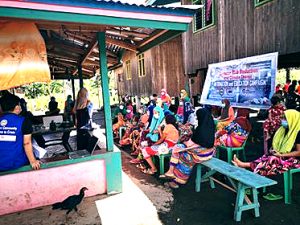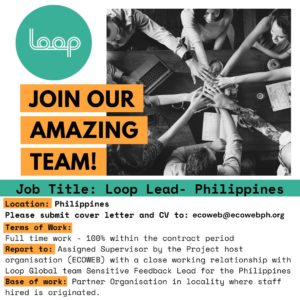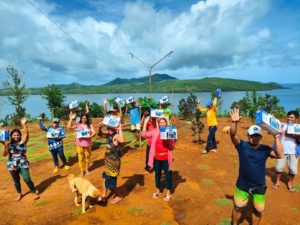Being a development worker doing humanitarian work, I do view that the present architecture of the World Humanitarian System is only a by-product of the centuries of unequal relationship between the developing recipient countries and the developed northern countries that include the past colonizer – our current donors and funders for our humanitarian work. Thus if we wish to change the present humanitarian system, we also need to address issues connected to our colonial past such as issues of injustice, inequality and power imbalance where vulnerabilities of most vulnerable countries and communities were rooted.
In our country, we often hear the comment that poverty is more a result of laziness and attitude of people for we could site a lot of rags to riches stories because of persistence and sacrifice. More progressives, however, assert that poverty is more of a systemic problem borne out of our colonial past that not only exploited our resources but corrupted our culture as well to the extent of destroying our self-help and justice system. The more than 300 years of colonization even robbed us of our self-esteem and belief in our innate capacity as a community and society.
May not be consciously, but I have observed how our colonial past have shaped our thinking, our mindset. Filipinos in general for example think that our products are not quality enough compared to those from the west and developed countries. We are thinking that the western education is much better than our own. That being able to speak English shows greater capability than those who cannot; thinking that English is a more advanced language than our own.
This mindset impacted even the development and humanitarian work where English is a requirement considering the relation, if not the dependency, of many to foreign donors and funders from the west. With our educational system giving more weight to English, being not so good in English is not capable enough and make them feel less confident.
With many of those in the poor communities not able to speak or understand English well, it then become a hindrance affecting their capacity especially in accessing support from the government that also practice writing all documents in English even if majority are having difficulty.
Our colonial past certainly made impact on the subconscious of the Filipinos about how we view ourselves, our capacity as people. But certainly we still have in our culture the strength and great capacity if only recognized and supported.
When Marawi city was devastated by the Isis-inspired siege that resulted to displacement of the whole population and destruction of the city center, we have observed how the Maranao Muslim IDPs made use of their culture of self-help. Majority stayed with relatives and support from family, friends and relatives from around the country and abroad poured through local volunteer groups. They and other locals became the first responders. Then international agencies came weeks after. Cluster system in cooperation with the government was instituted. And of course the local volunteer organizations are not part of the system. And because many are informal groups and don’t have the necessary qualification to become eligible for funding, they then slowly vanished and replaced by the more established organizations, including of the international aid agencies.
The situation of the Marawi IDPs highlighted the fact that in every disaster situation, survivors and communities would likely respond and take initiatives in accordance with customs and traditions not by humanitarian standards and protocols. The question is: does the Humanitarian System recognize these local initiatives important for survival of people in crisis? The sad thing is that these initiatives are often not recognized because mainly, government and humanitarian agencies operate based on their own modalities and standards set without their participation but by the agencies who have the power for they hold the source of power – the funds; and for the implementers – they are the more capable to follow due diligence required by donors.
And because communities and especially people affected of crisis just need the support, and since local organizations also have just accepted that there are certain requirements so funding will reach those affected of crisis, standards, criteria and mechanism required by funders and donors are just followed and accepted.
However, in the Marawi context, because the people have been struggling as well for assertion of self-determination for centuries already and do not actually just believe of anything given to them, I have seen how the survivor and community-led response approach that we promoted made a difference in influencing government and even some donors in their approach. It might not be the ideal yet, but the assertion made by the prideful people of Marawi supported with an enabling approach made me realize how local capacity can really challenge mindset and even systems if only supported and enabled.
There is no doubt that vulnerabilities of communities affected of crisis in our country is made more vulnerable by a response designed without participation of the people, but the Marawi experience also taught us that while inequality in system that result to powerlessness of people is a co-creation process, changing it also necessitates co-creation thinking but it needs the strong belief by the power holder that locals have capacity that they actually know better and there is a local system that actually can help themselves better if only trusted and supported.
Thus, it is not actually the lack of capacity but the lack of power that make communities more vulnerable made more powerless I would say, by the system imposed by those who think that they know better.








